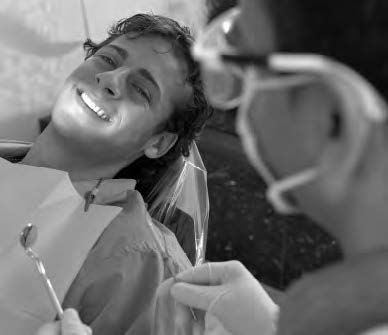It’s February, and we’re bombarded with little red hearts. As anyone who has ever loved another person knows, love works best when based on mutual respect
Respect is also the key to relating to your patients. I am reminded of this fact because I recently bought a new car. Yes, you read correctly; I use car sales and service personnel as examples of how I want to be treated. You see, where I take my business, everyone treats me with a good deal of respect, as if I’m a smart woman who knows nothing about cars. They understand, to retain my business, they must find language to communicate what I need to know. The language must be simple, clear, and non-condescending. I must grasp the situation well enough to make decisions that prove smart and intelligent. I need to know what their recommendations are, why they make them, if there are other options, and what I should be considering. In car shopping, if the only communication is “What color did you have in mind?” I go elsewhere. If my car has been serviced and I’ve been charged several hundred dollars, I don’t want to be cited meaningless codes, told not to worry, and sent on my way. I will never take a course in auto mechanics, but I do believe a situation can be explained to me in a way that empowers me to take appropriate action.
In dentistry, you face a similar challenge. Most patients want to be involved in decisions about their own health. They want to feel knowledgeable, even though they lack advanced training in your field. If they don’t learn what they need from you, they are likely to search for answers among their friends and on the Internet …sources that may, or may not, be accurate. They may decide to look for a new dentist.
In a wonderful movie about crossword puzzles, Wordplay, Bill Clinton explains how he solves the Sunday challenge. “I start with what I know, and I work from there. That’s how I tackle all difficult problems.” In communicating with your patients about dentistry, start with what they know. Build from there. Develop clear, concise descriptions. If you can tell stories and create metaphors, do so! Finding the most expressive language can be a challenge. Think of it as a matter of translation. Take time among your team to brainstorm ways to explain dental problems, procedures, complications, options, and solutions. Think creatively. Role-play the descriptions if it helps everyone communicate more effectively.
In talking to patients, make sure your tone is beyond polite, that it is respectful and conveys that you know your patients are capable of making important decisions about their own bodies. Treat them as if they are smart people who know little, or nothing, about dentistry.
By increasing the respect your office shows for your patients, you will increase the respect of your patients for your office. A real wordsmith, Ralph Waldo Emerson, said, “Men are respectable only as they respect.” It only makes sense.

Romalyn Tilghman has been the editor of Trojan Today for almost thirty years. She is also the author of the award-winning novel, To the Stars Through Difficulties, soon to be published in German as Die Bücherfrauen.

